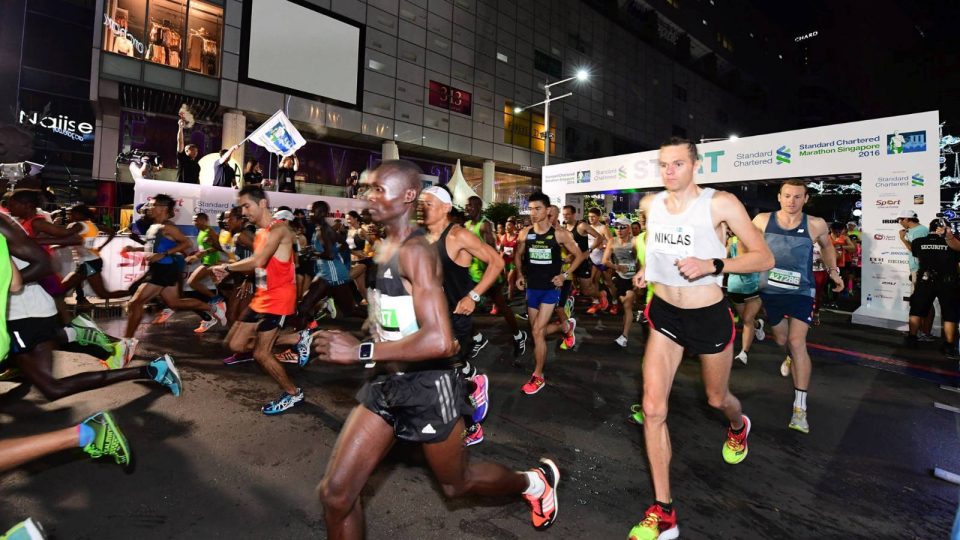A 28-year-old Briton runner who collapsed during the Standard Chartered Marathon Singapore (SCMS) last December had suffered a sudden cardiac death due to natural causes, a Coroner’s Court found on Thursday (4 May).
Mr John Ying Wah Gibson a British national who lived in Hong Kong had travelled to Singapore for a conference on 29 November 2016 and stayed on till 4 December to participate in the half marathon. He had no known medical conditions and a medical check-up had not revealed any ailments.
He started the race at around 4.30 a.m and at around 6.24 a.m. when he was less that 1km from the finishing line, a fellow runner saw him stagger, so he rush up to help Gibson.
However, the runner noticed that Gibson was pale and unresponsive. His eyes had rolled backwards and his mouth gaped.
A nearby volunteer photographer heard the runner calling for help and rushed over to administer Cardiopulmonary Resuscitation (CPR). However, he could not feel any pulse, and noted that Gibson’s skin was cold.
Two minutes after Gibson collapsed, a security personnel was notified, and she immediately informed her supervisor.
A roving first aider on duty was alerted and arrived at the incident location at 6.30 a.m. and took over the Cardiopulmonary Resuscitation (CPR) from the volunteer photographer until the ambulance arrived.
The ambulance arrived at 6.34 a.m. and conveyed Gibson to Singapore General Hospital at 6.45 a.m. where efforts were made to resuscitate him. Unfortunately, despite all resuscitation efforts, Gibson was pronounced dead at 8.50 a.m. in Singapore General Hospital.
Senior Consultant Forensic Pathologist Dr Marian Wang, who did an autopsy on Gibson, certified that the cause of death was sudden cardiac death due to natural causes. She said the mechanism of death was most likely lethal cardiac arrhythmia – the cause of which could not be determined and has ruled out heatstroke.
Investigation established that the ground response for Mr Gibson’s collapse complied fully with the medical operations plan and casualty management procedure set out for the race.
During the Coroner’s Inquiry, the deceased’s father, Mr Robert Gibson, 64 pointed out that there was a duration of 10 minutes between his son’s collapse and the ambulance’s arrival.
“(The security supervisor) didn’t know that the nearest ambulance had been sent away, so he ran to that one first. If the command centre had been notified immediately, it might have known (this),”
He proposed that the chain of command for future races be reviewed.
Commenting on race participants, State Coroner (SC) Marvin Bay said that runners should prepare themselves adequately before a race to mitigate the risk of death or injury. He said that runners should listen to their own bodies to recognise worrisome symptoms and slow down or stop when necessary during the race to prevent over-exertion.
Additionally, pre-race health screenings, a good night’s rest, hydration and a clean bill of health were needed for runners to safely compete in a race.
State Coroner Bay said that organisers should also provide more in-depth practical advice to race participants, especially to those who travel from overseas specially to participate as they may not be used to running in Singapore’s climate.
Mr Geoff Meyer, managing director of race organiser Ironman Asia, said in a statement that it offered its deepest condolences to the Gibson family.
“The safety of our runners is our utmost priority and the team regularly reviews safety and medical response plans with our partners and relevant authorities. We urge all runners to prepare themselves adequately for the race, and will continue to provide as much information and advice to help them achieve their race aspirations.”
Featured Photo Credit: Standard Chartered Singapore Marathon





